How to End a Pandemic? Georgetown Course Encourages Students to See Themselves in the Answer
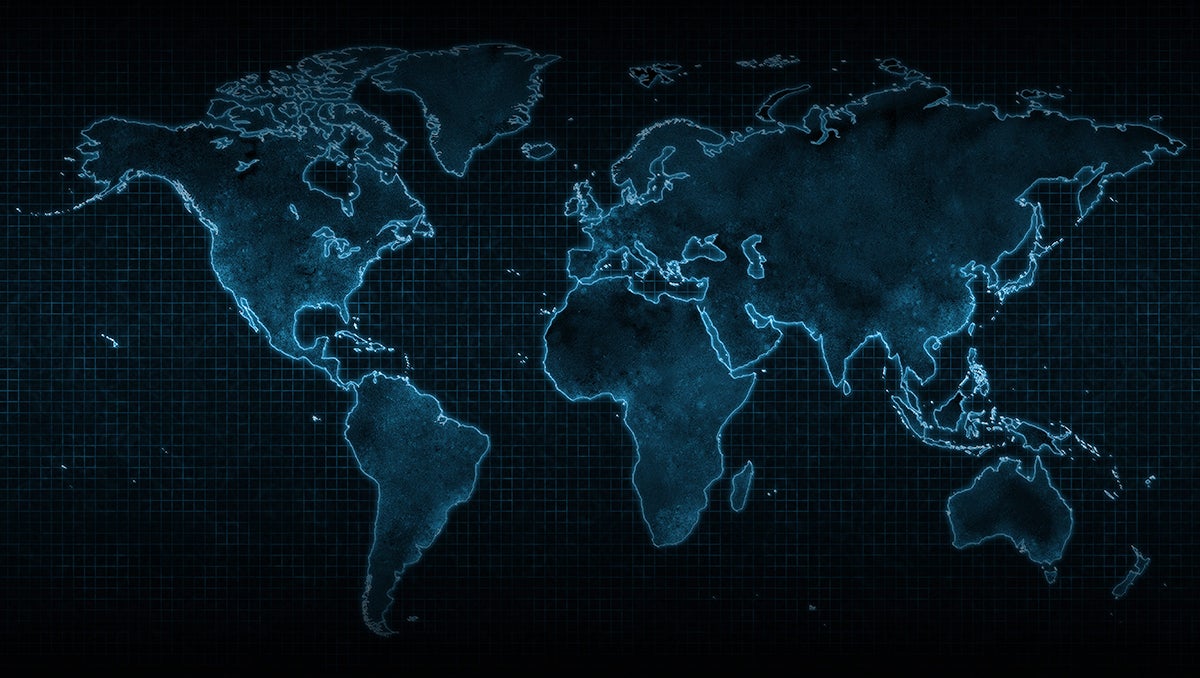
Posted in GUMC Stories | Tagged Center for Global Health Science and Security, COVID-19, global health, pandemic preparedness, student experience
(January 13, 2022) — When designing her innovative new course, How to End a Pandemic, Rebecca Katz, PhD, MPH, sought to push back against a common misconception regarding pandemic response.
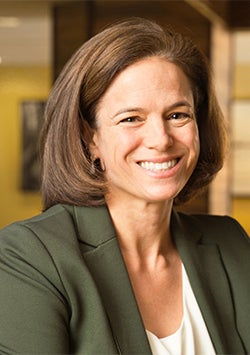
“There’s this narrative that there are a handful of heroes or heroines in the story of this pandemic — I want to challenge that,” said Katz, professor at Georgetown University Medical Center and director of the Center for Global Health Science and Security. “In actuality, there are tens of thousands of people from all over the world, from all walks of life, who all play a role. So why wouldn’t we highlight the experiences of people from a variety of communities and industries?”
In line with that thinking, Katz invited speakers with diverse backgrounds to share their insights with her students. A sampling of the speakers included Seattle Mayor Jenny Durkan; Maria Van Kerkhove, PhD, the COVID-19 technical lead at the World Health Organization; Joneigh Khaldun, MD, MPH, vice president and chief health equity officer of CVS Health; Ed Yong, a science journalist at The Atlantic; and Matt Maddox, CEO of Wynn Resorts.
“It’s fascinating to see how people from so many different sectors are all focused on this one problem,” Katz said. “The whole point is that it’s all about many, many parts adding up to a larger whole.”
Learning from Firsthand Experiences
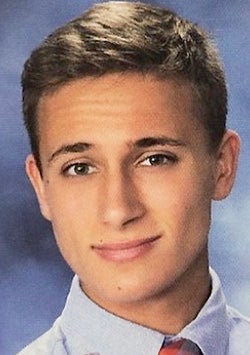
Lucien Carbonneau (C’22), who studies economics and has a background in biology, was impressed by the breadth of speakers and their cross-disciplinary expertise. In particular, Maddox’s business decision-making in the early stages of the pandemic left a strong impression.
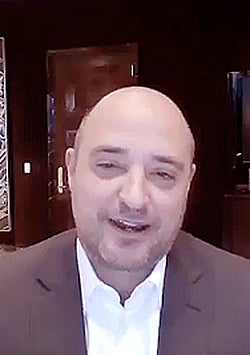
Having had firsthand experience with the SARS epidemic in 2003, Maddox instituted various ahead-of-the-curve measures to curb the COVID-19 pandemic, marshaling every available resource to position Wynn Resorts as a corporate leader in pandemic response.
Carbonneau was struck by measures Maddox took to support furloughed employees, and his advocacy for remedies that were fiscally hard to defend, but that ultimately led to increased resilience among his workforce.
“For a lot of companies, the attachment to image is more important than actually doing helpful things,” Carbonneau said. “Listening to [Maddox] I thought about how to create change and an economic incentive that truly intersects with the right thing to do.”
What Would You Do?
As a final project, students were asked to imagine their own roles in ending a hypothetical future pandemic. They were given the leeway to invent when this pandemic would take place, where they would be in their lives, and what they would contribute.
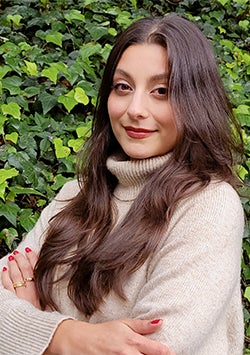
This assignment challenged Sara Gómez Trillos (G’21), who just completed Georgetown’s Master of Science in Global Health program in December and who works as a research specialist at the Georgetown Lombardi Comprehensive Cancer Center, to think about her work differently.
“When you think about a pandemic, you often think about infectious disease or epidemiology. But my focus is on community-based research and noncommunicable diseases, so imagining my direct role was harder than I expected,” Gómez Trillos said.
Gómez Trillos recognized that her experience working toward community-driven solutions could bring value in a future pandemic.
“In any health crisis, it’s hard to come up with solutions if you don’t ask the right questions, particularly of historically underserved communities,” she said. “I imagined myself possibly working with the Pan-American Health Organization or with the World Bank to develop guidelines for community-based needs assessments for people in other countries.”
Gómez Trillos also considered how her role could enable her to be a strong advocate for people living with chronic conditions such as cancer.
“Working in oncology right now, it’s become really obvious how the pandemic has had such a huge impact on the rest of the health care system, and how that’s affected the care of people with cancer. Maybe in my future role, I can influence health care decisions to make sure that people who are living with other chronic conditions can continue to get care even during a pandemic.”
For Katz, the creativity and personal reflections in these final assignments filled her with optimism about tomorrow’s leaders.
“They are going to go out and do amazing things. Everyone understood that this is about being an active member of your community — whatever that community may be,” she said.
Keeping an ‘Oral History’
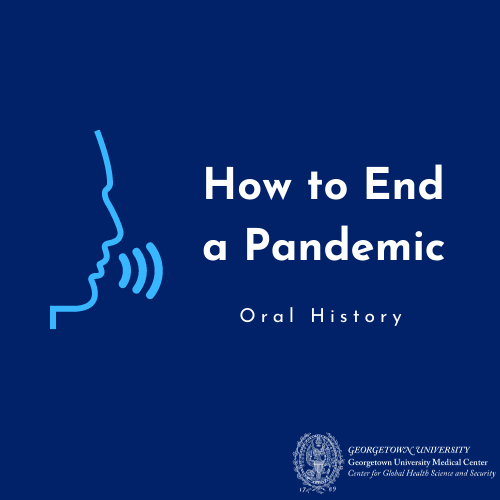
Every class recording of the interviews is currently available online, or will be soon — a public good Katz hopes will serve as a springboard for a robust “oral history” of the pandemic. The website where the interviews currently reside offers people the option to submit their own recordings as well.
The oral history project is small — currently, it is supported by nominal funding and three undergraduate students who edit and post videos and bios. The hope is to expand the project, possibly linking it to similar projects or to other evidence libraries.
“I don’t know yet what will come from this, but there is a real interest in capturing these stories and not missing this opportunity,” Katz said.
Lauren Wolkoff (G’13)
GUMC Communications
